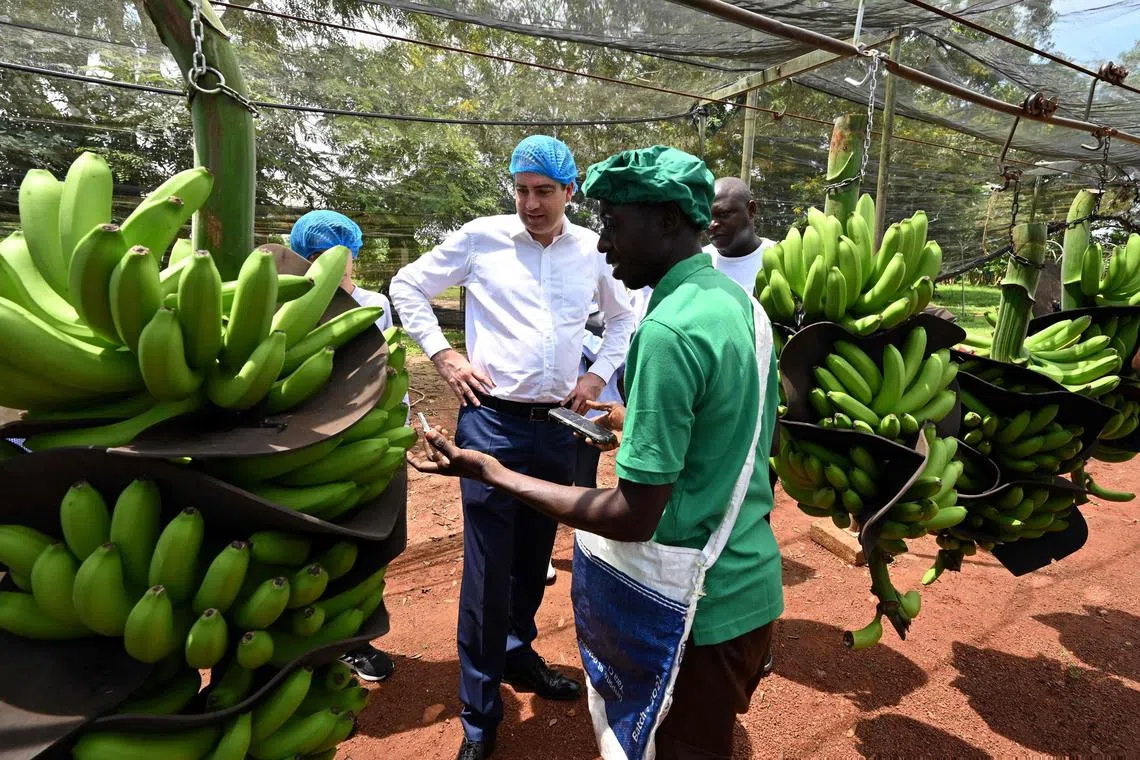For subscribers
Bees, bananas, clams and Covid-19 – why they matter in our last chance to save a vital global asset
Biodiversity underpins humanity’s survival but is under growing threat. A recent UN pact is a major step in damage control, but will it be enough?
Sign up now: Get ST's newsletters delivered to your inbox

French Minister of Foreign Trade Olivier Becht (centre) visiting a banana plantation near Tiassale in the Ivory Coast, on Oct 26, 2022.
PHOTO: AFP
Follow topic:
You probably think of honey spread on warm, buttery toast when you picture honeybees. Fair enough; these insects are indeed important to us as producers of this gooey goodness. But the greatest importance of honeybees lies not in their hives but in their overlooked yet essential ecological roles.
They – and a range of other insects, including butterflies, moths and bumblebees – are crop pollinators, a source of food for other creatures and nutrient recyclers, making them vital for the proper functioning of all ecosystems. But this critical link in the web of life on earth is under existential threat, with grave implications for all creatures big and small, including humans.


